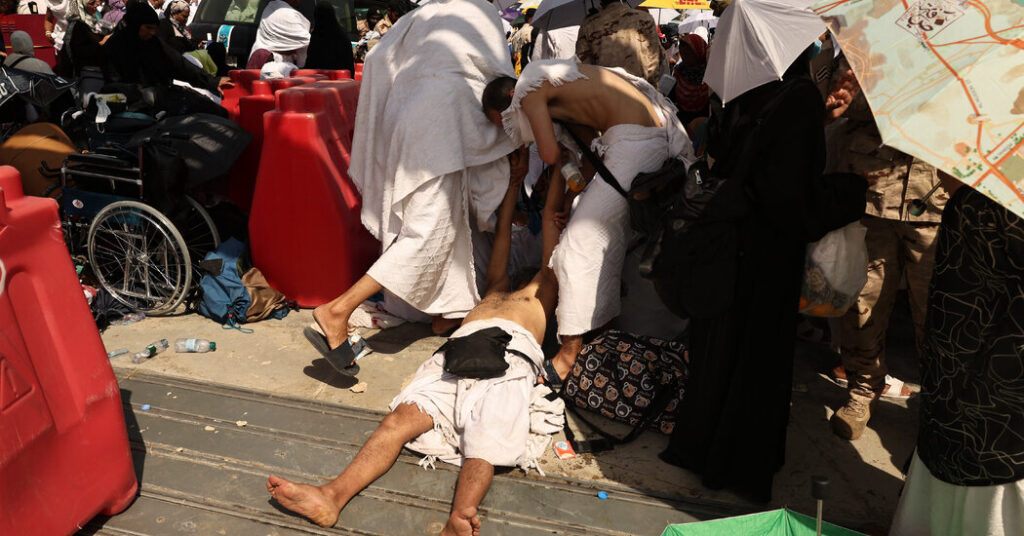Dozens of people have died in sweltering temperatures during Saudi Arabia’s annual pilgrimage to the holy city of Mecca, state media in the Middle East and Africa reported.
With temperatures expected to reach 113 degrees Fahrenheit (45 degrees Celsius) on Tuesday, Saudi officials issued a warning to pilgrims, urging them to stay hydrated, minimize outdoor activities and carry umbrellas to protect themselves from direct sunlight.
While Saudi Arabia has not yet reported a death toll, news reports from some countries where worshipers travel to perform the hajj suggest that the heat has proven deadly.
On Sunday, Jordan’s official news agency said 14 pilgrims had died due to exposure to extreme sunlight and heat. On Wednesday, the agency said it had issued burial permits for 41 Jordanian pilgrims in Mecca, but gave no details on the cause of death.
Tunisia’s foreign ministry said at least 35 Tunisians had died, the state-run Tunisia Africa News Agency reported on Tuesday, noting a “dramatic rise in temperatures” and “scorching sun” during the hajj.
Three pilgrims from Senegal also died, according to a statement from the Senegalese Ministry of Foreign Affairs, which did not specify the cause of death. Egypt’s foreign ministry said consular staff in Saudi Arabia were working “around the clock” to help bury and search for missing Egyptian pilgrims, without giving a specific number.
Saudi Arabia’s ministries did not immediately respond to questions about the reported deaths.
Every year, Muslims travel from around the world to Mecca for the five-day pilgrimage, which ends on Wednesday. Hajj is one of the five pillars of Islam and all financially and physically capable Muslims must perform this ritual at least once in their lives.
According to the Saudi Arabian Bureau of Statistics, more than 1.8 million people have made the pilgrimage this year, including 1.6 million from abroad.
Many older pilgrims have also experienced heat stress in recent years, and dozens have died from the heat.
On Tuesday, Saudi officials called this year’s hajj season a “success,” with state media reporting that Health Minister Fahd Al-Jarajel expressed “particular satisfaction that there was no outbreak or other public health threat, despite the large number of pilgrims and Challenges posed by high temperatures.
Authorities also cited “advanced cooling systems” and a “continuous supply” of water to pilgrims to ensure “a smooth and safe Hajj for all.”
Wydah Saad Contributed reporting.

